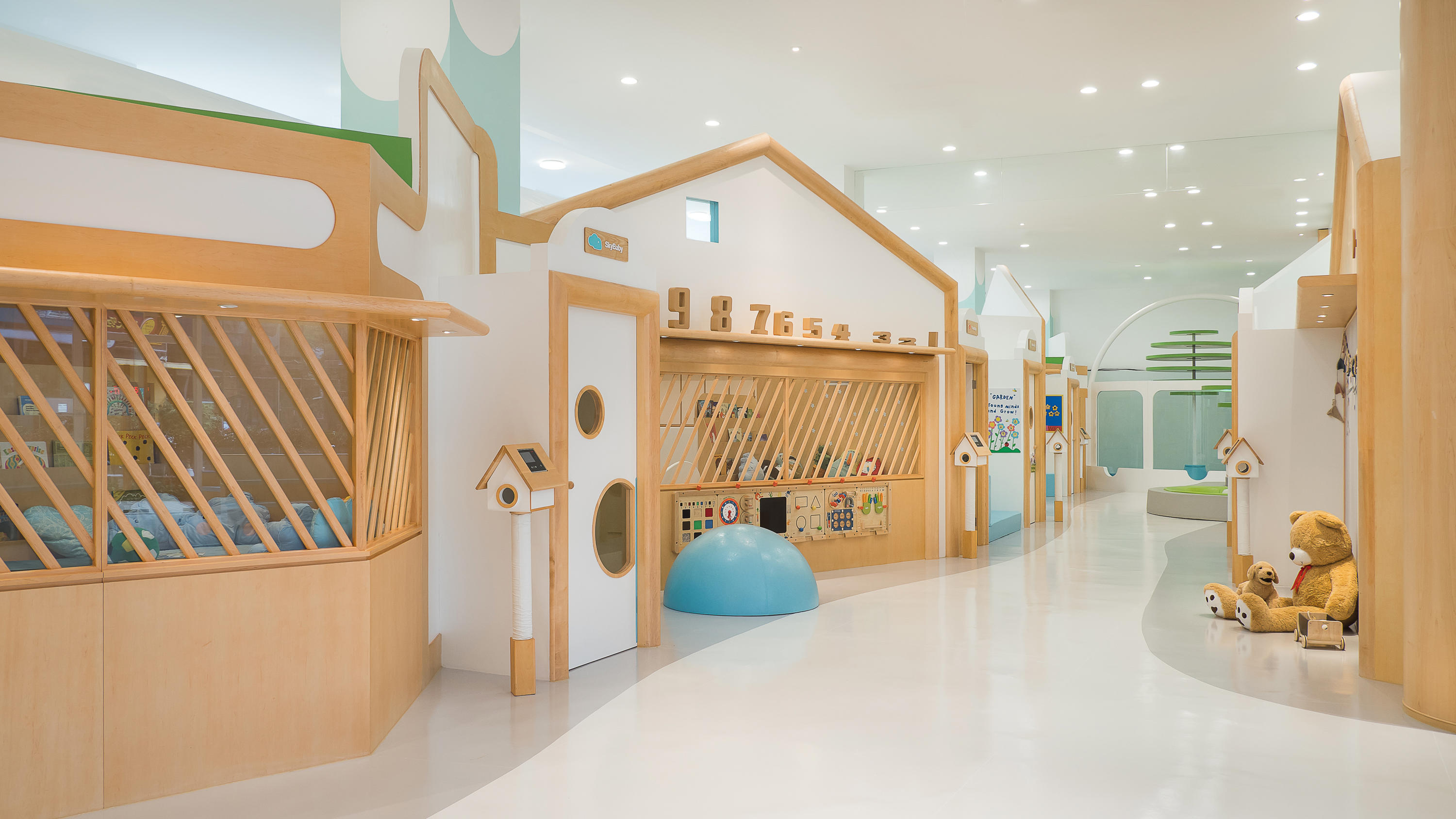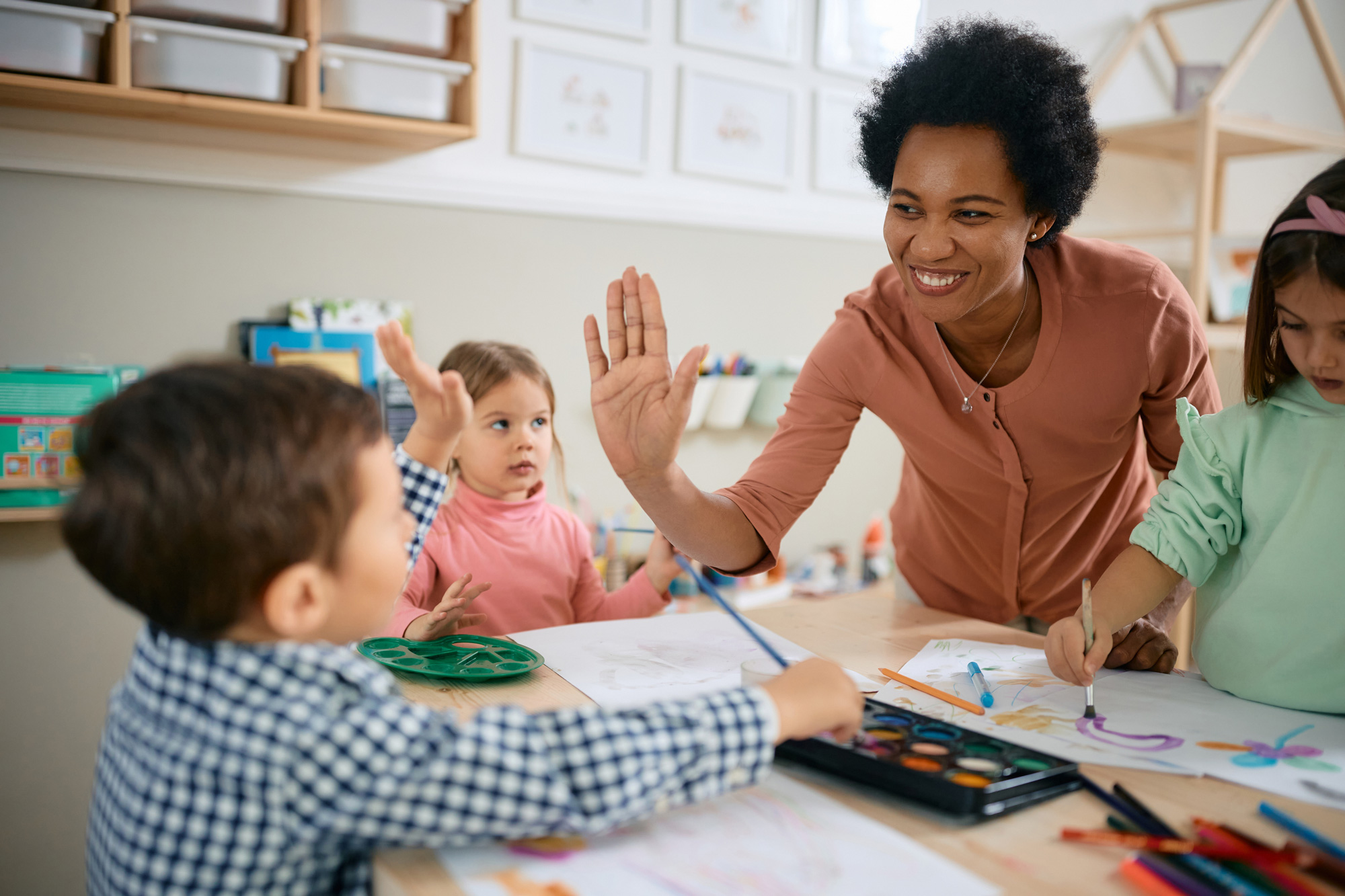Recognizing the Value of Daycare for Your Toddler's Social Growth and Learning Experiences Via Involving Tasks
The value of day care fit a toddler's social development and understanding can not be overemphasized, as it uses a structured setting full of interesting tasks that are crucial for very early growth. These experiences not just improve social communication yet additionally act as a crucial platform for creating communication abilities, psychological guideline, and resilience. Understanding exactly how these aspects interconnect can provide understanding right into fostering self-reliance and confidence in kids. As we discover the diverse advantages of day care, one need to take into consideration exactly how these foundational experiences influence a kid's future social communications and general development.

Benefits of Social Interaction
Social communication plays an essential role in the developmental trajectory of kids, offering as a structure for essential social skills. Involving with peers enables toddlers to practice communication, find out to reveal their emotions, and develop compassion. Via shared play and teamwork, they begin to recognize social standards, such as taking turns and sharing, which are crucial components of successful social relationships.
In addition, social communications add to cognitive growth. As toddlers communicate with their peers, they enhance their language abilities, broaden their vocabulary, and enhance their capacity to articulate sensations and ideas. This exchange of ideas fosters crucial reasoning, as youngsters discover to negotiate, fix problems, and navigate conflicts.
Additionally, social interaction promotes emotional guideline. Exposure to numerous social situations assists kids recognize and handle their feelings, ultimately causing better durability and flexibility. The ability to create attachments and relationships also improves their feeling of belonging and self-esteem, which are vital for overall well-being.
Value of Engaging Activities
Engaging activities are necessary for fostering a stimulating atmosphere that boosts kids' social advancement. These activities not only mesmerize kids's focus however likewise promote active involvement, allowing them to explore their surroundings artistically. Via play-based knowing, kids create essential skills such as problem-solving, cooperation, and empathy, every one of which are crucial for constructing healthy partnerships with peers.
Joining interesting tasks, such as team games, art jobs, and interactive storytelling, encourages kids to express their feelings and ideas. This expression is vital for emotional intelligence and helps them recognize the viewpoints of others. In addition, when toddlers participate in these activities together, they learn to discuss duties, share resources, and collaborate, which are fundamental elements of social communication.
Furthermore, a well-structured atmosphere that consists of stimulating and varied activities aids in keeping toddlers encouraged and focused. This inspiration fosters a love for discovering and exploration, laying the structure for future educational experiences. Inevitably, involving tasks in day care setups are critical in forming social abilities, preparing young children for successful communications beyond the classroom, and nurturing their general development during these developmental years.
Developing Interaction Abilities
Effective interaction skills are important for toddlers as they navigate their very early social communications. In a day care setting, kids are revealed to diverse social circumstances that encourage spoken and non-verbal communication. Engaging in discussions with peers and caretakers fosters language advancement, making it possible for toddlers to share their needs, thoughts, and emotions more successfully.

Furthermore, daycare settings provide possibilities for young children to observe and imitate interaction designs of their peers and grownups. This empirical learning is vital as children select up on social cues, tone, and body language, which are essential parts of reliable communication.
Cultivating Self-reliance and Self-confidence
As kids fine-tune their communication skills, they at the same time start to explore their self-reliance and build confidence in social setups (daycare for infants near me). Childcare supplies an organized environment where kids can engage in various activities that urge autonomy. From choosing their very own activities to joining group tasks, these experiences equip toddlers to choose and share themselves
In a daycare setup, youngsters are typically presented with chances to solve issues individually, whether it's identifying just how to share toys or resolving conflicts with peers. This promotes vital reasoning and advertises self-reliance. Furthermore, caregivers sustain this growth by giving favorable reinforcement and advice, helping children to navigate social interactions with confidence.

Team tasks, such as participating video games or joint art jobs, facilitate synergy and teach young children the relevance of interacting. Through these communications, kids find out to communicate their feelings and ideas, further improving their self-worth and social skills.
Eventually, promoting freedom and confidence in daycare not just prepares toddlers for future social settings yet also lays the groundwork for a durable mindset, furnishing them with essential life skills as they continue to discover and expand.
Structure Lifelong Understanding Foundations
A strong structure for long-lasting understanding is critical for toddlers, as their early experiences shape their mindsets in the direction of education and learning and inquisitiveness. Childcare atmospheres play an essential function in this developing stage by supplying organized opportunities for exploration and involvement. Involving tasks, such as group play, arts and crafts, and interactive storytelling, stimulate cognitive development while urging social communication.
Via these experiences, kids find out crucial skills such as analytical, interaction, and participation. They are presented to the principle of learning as a delightful, joint procedure instead of a duty, which cultivates a favorable perspective in the direction of education and learning. Direct exposure to varied point of views and peer interactions in childcare setups enhances psychological knowledge, advertising compassion and strength.
Caregivers and educators likewise add dramatically to constructing this foundation by modeling curiosity and excitement for learning. By urging concerns and helping with conversations, they produce an environment where children really feel safe to share themselves and explore originalities. Ultimately, the mix of supportive partnerships and appealing activities in day care settings lays the foundation for a lifelong love of understanding, outfitting young children with the abilities and frame of mind essential for future academic and personal success.
Final Thought

The importance of daycare in forming a young child's social advancement and learning can not be overemphasized, as it provides an organized atmosphere loaded with interesting activities that are essential for early growth.Social communication plays a vital role in the developing trajectory of young children, offering as a foundation for essential social abilities. When toddlers involve in these tasks with each other, they learn to bargain functions, share sources, and work together, which are essential facets of social interaction.
Ultimately, engaging tasks in daycare setups are essential in forming social skills, preparing kids for effective communications beyond the classroom, and supporting their overall growth throughout these formative years.
Inevitably, the benefits of appealing tasks in childcare setups play a considerable duty in preparing toddlers for future social communications and obstacles. toddler daycare near me.
Comments on “Leading Functions to Try To Find in Toddler Daycare Near Me: Making Sure Top Quality and Enjoyable”